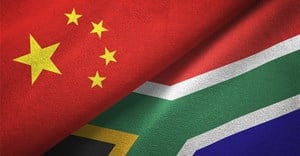
Subscribe & Follow
5 things Absa learnt when adopting the .africa domain

Launched just more than a year ago, the .africa domain is widely promoted by the African Union, intended to support and develop business and corporates on the African continent.
Adopting the new – mostly unknown and distinctly African – domain was not without its challenges, but it underscored Absa Group’s efforts to establish its new identity as an independent, digitally led African bank.
Five things Absa learnt in adopting .africa:
- As an early adopter, be ready to break big waves
- Global IT infrastructure isn’t designed to embrace .africa
- The traditional domain name space is a bit crowded
- Register, register and keep registering
- Corporates don’t generally seem to have an email or domain naming policy
.africa is a new domain, launched only last year.
When Absa began the process of migrating its online information to its new domain as part of its separation from Barclays, the domain was not even a year old.
With no other large corporate having adopted .africa as their primary domain, Absa was on its own in working out how to best transfer data, integrate the new domain and enable top-tier cyber protection, while ensuring social acceptance of the new domain. It was no easy feat as the process differs from the steps that would have applied to moving information to another traditional domain name such as .com or .co.za
A complete domain change at Absa involved not only setting up the new domain and all its security protocols, but also migrating almost 60,000 email addresses – seamlessly – while minimising downtime.
The transfer of data and email addresses was by far one of the most complex aspects of the process, and our teams have transferred over 6,000 accounts since 11 July 2018, according to Craig du Toit, Absa’s brand technology lead. As Absa rolls out its new brand and domain across the rest of its African operations, it expects to migrate a further 54,000 email addresses over about 18 months.
Global IT infrastructure is familiar with traditional domains such as .com or .co.uk or .co.za, and much less so with newer domains such as .africa. Many network servers around the world have bulk lists of ‘whitelisted’ domains that ensure that those on the network have no difficulties in accessing websites with more traditional domains.
event
According to Registry Africa (ZACR), which allocates .africa domains, there are only 16,445 registered .africa domains, compared to the more than 130 million registered as .com sites, in Africa. But, newer domains are not generally on these whitelists, even if they are publicly supported by credible organisations such as the African Union.
Traditional domains such as .com or co.uk do not have that many more web address options left. The .com addresses and registrations are oversubscribed, with exceedingly high after-market re-purchase prices.
Newer domains such as .africa are an opportunity for corporates such as Absa to create options for themselves – which is crucial to brand protection.
Trademark and copyright protection are important to any brand. As a result, many large corporates buy domains and web addresses that they do not intend to use, but that they would not want a competitor or someone with nefarious intentions using.
For example, a large corporate such as Coca-Cola has likely bought up domains such as coca-cola.africa, coca-cola.joburg, coca-cola.durban and many more such addresses, simply to ensure that no one else uses them. Should they ever need these addresses, they are also readily on hand.
Thus far, Absa has registered more than 400 additional domains, as part of a wider defensive strategy.
Knowing that the company would have to change its domain from that of Barclays Africa to a name resembling its African identity, Absa looked to other large corporates that have successfully migrated domains for guidance on policies and procedures.
What the team realised, however, is that there was no apparent precedent – let alone policy – to follow. While some large corporates may have moved domains previously, none had moved to a relatively unknown domain like .Africa.
Further, while many companies have an unofficial email address convention (usually along the lines of name.surname@company.domain), they do not appear to have official guidelines on this process. What, for example, happens when two people with the same name join the organisation? Considering that Absa Group employs more than 41,000 employees across the continent, there is a real chance of this happening. The new corporate policy makes provision for these challenges, outlining clear processes.
The Absa team developed an email and domain naming policy from scratch, specifically crafted with their business purpose in mind, and knowledge of how a modern working environment uses domain functionality. Much of the project work involved setting up new environments and moving accounts from outdated platforms that don’t support direct migration.













